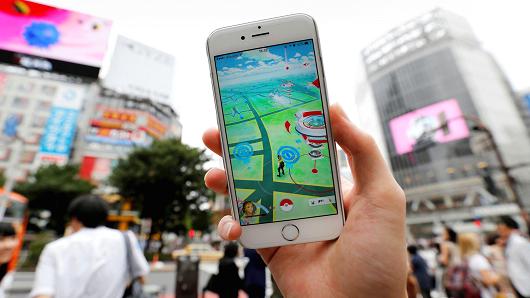Last summer, “Pokemon Go” took the world by storm, with kids and adults obsessively hunting for Bellsprouts and Pikachus, sometimes at their own peril. The game earned $200 million in its first month and served as an introduction for augmented reality games to most people.
But as addictive as the game was, “Pokemon Go” was ultimately just a time suck for most people. Now a U.K. startup is utilizing the same concept to offer actual physical rewards to players.
“Snatch” launched last month in the U.K. and has already been downloaded more than 250,000 times. It’s the country’s most popular adventure app, and it’s coming to the U.S. later this year.
The game made its American debut at the South by Southwest conference in Austin. Players at the show are currently competing for prizes ranging from backpacks and beauty products to free avocados for life and $50,000 in startup funding.
“We’ve got a huge amount of respect for the game [Nintendo and Niantic] built,” says Phil Lloyd, chief marketing officer for Snatch. “They have helped people like us accelerate conversations, because now people know [the game mechanics] and it’s very easy to get across the concept. … But while we are similar, we’re also not. The entire point of Snatch is brand integration.”
The game works like this: Players use augmented reality to find parcels that contain some kind of swag (much like you’d hunt for Pokemon in the better known game). In the U.K. version, those include free meals and subscriptions to Sky TV’s Now TV streaming service. Once the parcel is opened, whoever is in possession of it six hours later gets the prize – but other players can steal (or “snatch”) it away. In-app purchases allow players to protect or pilfer their swag in a variety of ways. (In-app purchases are just a small part of the financial model for the company, though. Companies pay Snatch for placement in the app and pay again when players claim a parcel.)
So far, says Lloyd, 25 brands have signed one year contracts to promote their products in the game. And as the company preps for its U.S. launch, it’s lining up prizes from both big corporations (Unilever Ventures is one of it backers, so talks are underway with that company’s other brands) and local establishments. New York will be the first city to get to play with a scheduled summer launch.
“This isn’t all about big global brands,” says Lloyd. “This is about small medium and large brands. … And part of the interest for brands is people really respect the contents of the parcel. Once you’ve got one, you really work to keep it for six hours.”
For players, it’s about the thrill of the hunt. The game uses an algorithm to ensure there are always people around to snatch from – but even if you’re out of defenses, there are ‘safe houses’ where your parcel can be protected for up to an hour. Not surprisingly, those are also Snatch retail partners – and players who check in to those locations are often rewarded with a discount coupon.
But Lloyd says the real fun of Snatch is being in the midst of the fight for prizes.
“The most exciting part of the game for people is doing the thing you shouldn’t do, which is stealing from other people,” he says.
While early momentum is promising, Snatch is taking a very deliberate pace with its rollout. After New York, the company will add one U.S. city at a time, most likely a mix of towns with dense populations and smaller tech hubs (where the potential base of interested players might be larger).
The idea, he says, is to avoid the significant drop in players “Pokemon Go” faced as the hype cooled.
“We’re very mindful of the very steep curve [Pokemon Go] had,” says Lloyd. “We just want to have a game that has a longer lifecycle.”



